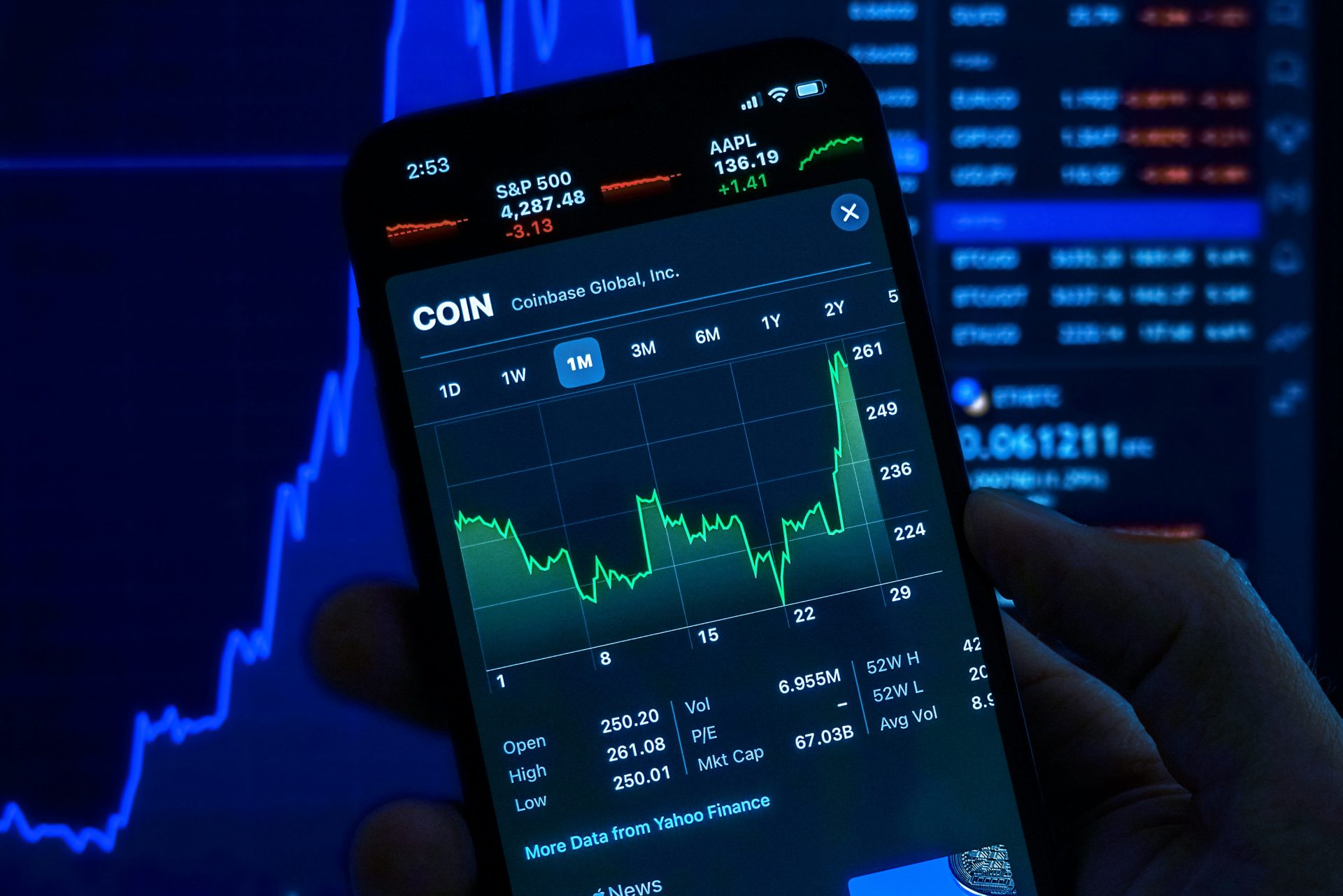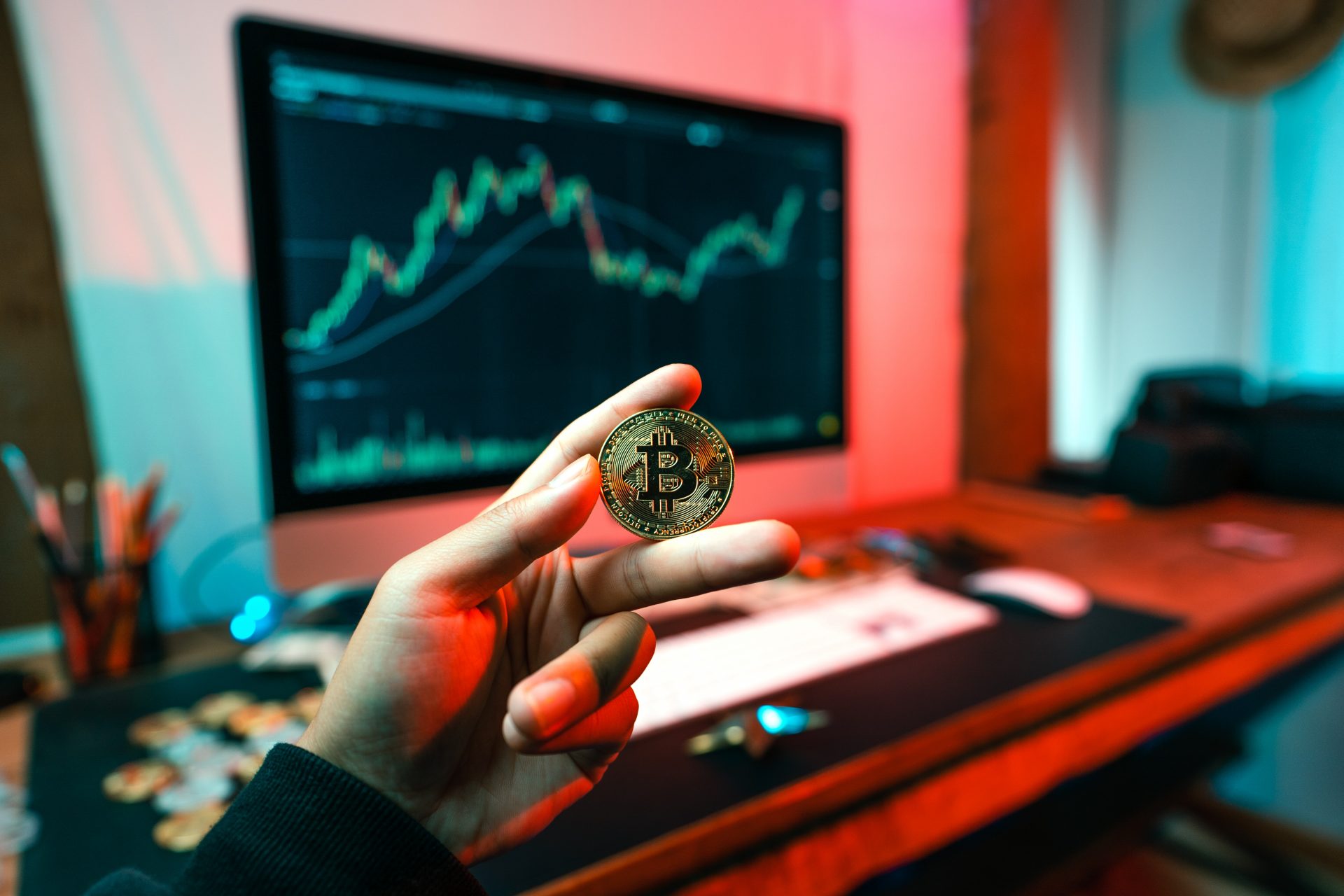Europe Is the Second Region for Spacetech: Why and Who Is Contributing to That?
In recent years, startups in CEE have begun capitalizing on the momentum of the space […]
Search for...

Cryptocurrencies have been building their momentum in the past years, but they have been on everybody’s radar in the last couple of weeks amid the Russian invasion of Ukraine.
To evade sanctions, Russia tapped into digital resources to wreak havoc, while Ukraine turned these into the necessary support to stand its ground.
Today, crypto assets are valued at over €2T worldwide, with coins and security tokens as examples of virtual currencies that could replace cash. The Recursive reached out to several crypto experts in Romania to discover more about the effects of the war on the crypto markets.
Weighing in on today’s topic are Bogdan Almasi and Felix Crisan, two co-founders of the Romanian blockchain crowdfunding platform RONIN. While Bogdan has a background in banking and finance, Felix joins with computer science expertise.
They are joined by Vlad Luca, Chief Product Officer at Modex, a blockchain database provider which helps companies protect their information. He has a background in marketing and economics.
Other key developments that will affect crypto markets in 2022 according to the experts are:
A huge amount of volatility and uncertainty comes with war. Anxiety, strong emotions affecting the investors, the power of disinformation. But crypto investment veterans are used to this.
Bogdan Almasi

Felix Crisan: Depending on who you’re talking to, the explanations would range from numerical justification, such as proponents of stock-to-flow and the four years crypto cycles, to more conspiratorial one, like the whales that pump-and-dump (ed.note. – “whales” are big investors that purchase high amounts of cryptocurrencies to inflate it).
I think that the explanation is two-pronged. On one side, there was a macro-economic slump in prices, including the very traditional ones (e.g. both NASDAQ – National Association of Securities Dealers Automated Quotations, and DJIA – Dow Jones Industrial Average – dropped in the last 6 months by more than 10%).
On the other hand, there’s a fear of more regulation in the cryptocurrencies/crypto-assets area (there are proposals in the US); including some very concrete moves in China, India, and elsewhere.
There is a much longer explanation that also takes into consideration the increase of M2 over the last two years with the gigantic increase in inflation and puts it in balance with the yield of more traditional assets.
The war impacted prices negatively. On Thursday, the 24th of February, most cryptocurrencies dropped 5%+, except for the defense industries, but that trend was short-lived and also observed in the stock market.
However, the markets (crypto and traditional) have rebounded over the weekend and the financial sanctions imposed have (in my view) dramatically boosted crypto prices. Once the traditional financial system was opened on Monday, the 28th of February, we have seen ~15% gain.
Being a mostly-uncensorable medium of value transfer, I would expect that all the parties use it – some more silent than others.

I think that the leitmotif of 2022 is going to be regulation and government. Regulation because it is likely to have new laws imposing new restrictions in a few states. Government because we will hopefully see some other governments (the US states or outright countries) adopt cryptocurrencies as legal tender. There are such initiatives underway in California, Texas, Wyoming, and Arizona, as well as in Uruguay and Panama.
At the intersection of the two (crypto and government, or rather central banks), we see quite a few initiatives (including at European Central Bank – ECB and Federal Reserve System – FED) around central bank digital currency (CBDC). I think that while these are helpful in the short term, they are dangerous in the long term.

The main advantage and disadvantage is the fact that the transactions are made in a person-to-person manner, without intermediaries, and they are exhaustive.
Depending on which of the three functions of money we focus on, there will be advantages to using crypto coins as an inflation hedge or for the development of circular economies; the goal is to lead to less reliance on fiat on and off-ramps.

Bogdan Almasi: I believe two events of early 2022 rocked the crypto market the most: the government of China “announcing all transactions of cryptocurrencies are illegal” and Tesla withdrawing the Bitcoin payment option for clients.
China is one of the biggest crypto markets in the world, and until the end of 2021 was the biggest Bitcoin miner in the world. These kinds of rules for crypto in China have a huge impact on the crypto market and I am sure this was the main reason for the latest drop.
Secondly, we’ve been witnessing for the last two years the impact Elon Musk has on the crypto market and how big his influence can be in dropping or raising the value of crypto. The international crypto community sees him as a true and strong believer in the crypto cause. And when a true believer says cryptocurrency has a “promising future”, but that it “cannot come at great cost to the environment”, talking about the sources of energy used for mining Bitcoin, the signal the small investors get is not a good one.
We’re still in the early dawns of a new industry, we see every day how a new class of assets is born. We can’t ask for a stable market. The volatility is here to stay for a while. We have to work for getting mainstream adoption through clear and pro-business regulation and scalability.
My guess is that outside of Russia and Ukraine borders the impact of the war on the crypto market will be minor.
There are bigger issues crypto investors are worried about for the near future: governments understanding they can’t control and influence the new global financial decentralized infrastructure and the new crypto-assets market, the next Fed meeting talking about crypto regulations, China ban and other similar topics.
Crypto has a huge potential to engage big communities from all over the world.
The friendly user experience makes a transfer easy and suppresses any possible obstacles for people to support a cause or an entity, even if the beneficiary is in a war zone where the obsolete financial infrastructure is no longer functional. As long as there will be Starlink satellites in the sky, anyone in the world will be able to get financial support through crypto.
On the other side of the war, thinking crypto can be used to avoid sanctions or to hide money from the aggressors is a huge mistake. Two of the most important benefits blockchain brings are traceability and audibility. On the blockchain, any transfer is registered and there are tools authorities can use to identify the capital flows which should be intercepted and blocked.
The main factor with a big potential to influence the crypto market is regulation, how the governments understand how to approach the crypto phenomenon. Unfortunately, most of the political decision-makers are too infatuated by their very important mission as public servants, and they are not able to see how technology disrupts everything day by day.
The crypto mechanism is the pure expression of what a free market should look like – the only important thing is the supply/demand ratio.
The highest growth vectors for crypto in 2022 are likely to be Decentralized Finance Applications (DeFi Apps) and Decentralized Autonomous Organizations (DAOs). DAOs seem to be the perfect answer for the continuous decline of trust in the present social and economical organization, in governments and states as we know them.
Democracy at its best, fair access to wealth through smart contracts, and technology-enforced rules should be available to everyone.
A serious risk could be the inability of the crypto market to decouple from the stock market. Having a war context and inflation at its highest levels in the last many decades, the stock market is waiting for a bumpy road this year.
Another important thing that is likely to happen is the disappearance of most of the meme coins. Hopefully, the lessons of the near past will keep investors from repeating the same mistakes.
The advantages of using crypto are the same since the beginning, but each year new and new use cases make crypto more valuable and interesting. So, the main advantage I would say is the continuous and fast increase of adoption.
The other advantages: easy and fast transactions, low transaction fees, high security, industry at its dawns with a huge potential to grow, a safe way to protect your capitals from inflation, a more inclusive financial environment with cross-border transactions for all and with a 24/7 open trading market.
I think that the main issue with the usage of crypto is scalability. Smarter and more accessible solutions are required for mass adoption. Other risks are cybersecurity issues, unpredictable regulations, evolution and volatility, but volatility can also turn out to be a huge opportunity for crypto veterans.

VLAD LUCA: These types of downturns are normal occurrences. The dynamic nature of the crypto market will inevitably lead to ups and downs until it will eventually stabilize and settle down – but that could still be a few years away. That’s not necessarily bad news.
It’s very difficult to predict the effects of such a major conflict on the global crypto market, and even if it did end up boosting the market somehow, we still wouldn’t dare to view it as a positive event.
The market may or may not grow in the coming days or months, but it’s probably going to be quite difficult to directly correlate whatever is happening to the war in Ukraine. Our hope is for the war and destruction to end as soon as possible.
It’s not a feasible alternative that could help the Russian government or other people to carry on with their normal lives considering the huge economic impact of the international sanctions. Even though they don’t specifically target digital assets, they also have an impact on Russia’s ability to trade internationally on the crypto market.
We saw a significant surge in Rouble-crypto trading while the sanctions hit the Russian currency. This could hint that Russians are looking for alternatives to fiat currencies.
We hope that the regulations will allow the market to flourish and not limit its potential. Additionally, any major economic downturn (which many experts are predicting for the coming year) will inevitably have some effects on the crypto market.
It’s not easy to predict whether it’s going to lead to its growth or decline. On the one hand, some investors will become more conservative in a crisis, but at the same time, others will look for alternatives to the traditional financial system.
The transparency, accessibility, speed, and security of transactions remain extremely relevant. These features can prevent bad actors from using the public network to conduct illegitimate transactions – at least not on a large scale.
Every single contribution of yours helps us guarantee our independence and sustainable future. With your financial support, we can keep on providing constructive reporting on the developments in the region, give even more global visibility to our ecosystem, and educate the next generation of innovation journalists and content creators.
Find out more about how your donation could help us shape the story of the CEE entrepreneurial ecosystem!
One-time donation
You can also support The Recursive’s mission with a pick-any-amount, one-time donation. 👍
In recent years, startups in CEE have begun capitalizing on the momentum of the space […]
In a nutshell FilmChain, a UK-based startup with founders of Romanian origin, completed a new […]
For Web3, the proverbial calm before the storm seems to have taken an unusual turn. […]
